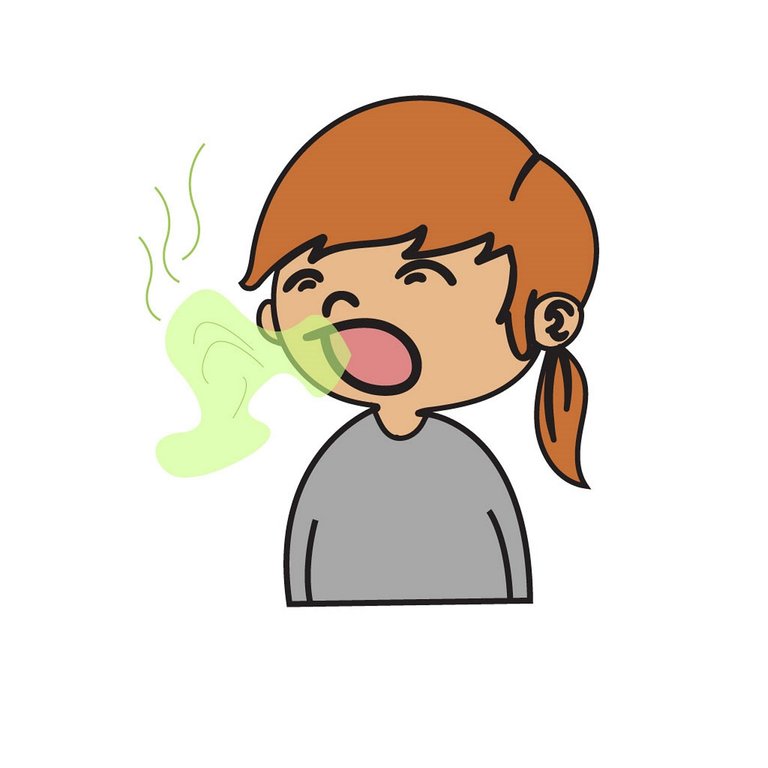
Bad breath(Halitosis) is “malodor with intensity beyond a socially acceptable level perceived.”
It affects around 30% of the people. Bad breath affects all ages, including children, although it is more commonly seen in the adult population. Men and women are equally affected.
3 types of bad breath.
Physiologic halitosis (morning breath) – Bad breath that does not have a specific cause. It is usually worse in the morning and often transient.
Pathologic halitosis – Bad breath that results from a specific identifiable cause, mostly by the diseases of mouth, nose and airways.
Pseudo-halitosis – Perception by the patient that bad breath is present when there is no objective evidence of bad breath. Its psychological.
Signs of Pathological halitosis
Fever
Dry mouth
Gum redness, swelling, bleeding, tooth mobility
Enlarged tonsils, deviation of the uvula
Pus discharge from nose
Foreign body in nose
chronic cough , purulent sputum
To treat pathological bad breath, we should find the underlying cause and treat accordingly. If any of the signs are presented we should consult the doctor as soon as possible since the common causes are mostly due to bacterial infection.
If there is no specific cause identified for the bad breath, many patients will improve with these measures:
●Sugar-free chewing gums (which stimulate saliva production).
● Good hydration.
● Decreasing smoking and alcohol and coffee intake.
● Proper dental care and oral hygiene, including daily flossing.
● Gentle cleaning of the posterior portion of the tongue (eg, with a plastic tongue cleaner).
● Rinsing and gargling with a mouthwash before bedtime.
The best time to use a mouthwash is probably before bedtime, since the residue of the mouthrinse may remain in the mouth for a longer period of time and have a greater effect.
In addition, bacterial activity leading to bad breath is greatest during sleep, when saliva flow is practically zero and microbial activity is highest.
The quaternary agents active in many mouthwashes (cetylpyridinium chloride, chlorhexidine) may be inactivated by the anionic detergents in toothpastes; thus,it is advised to use mouthrinse an hour or more after brushing their teeth.
Since much of the odor is associated with the posterior tongue, it is important to gargle in addition to oral rinsing.
The most efficacious oral rinses for short-term use are those containing chlorhexidine gluconate 0.2%.

welcome to steemit,
Get to know how to earn more on your posts and get more followers.
Make new friends and interact.
We can share our thoughts.
In the steemit school, we have ultimate contest challenges where you get to win and make investments.
You need support from a community to grow and earn easily on steemit.
I recommend one for you.
Meet over 3k + steemians.
Steemit is a business, we will teach you how to succeed
join the steemit school on discord https://discord.gg/pqWrzBn
Congratulations @drogba11! You have completed some achievement on Steemit and have been rewarded with new badge(s) :
Click on any badge to view your own Board of Honor on SteemitBoard.
For more information about SteemitBoard, click here
If you no longer want to receive notifications, reply to this comment with the word
STOPthanx